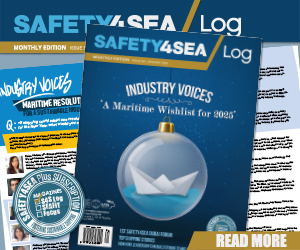Ambipar Response, leading the emergency effort in the Sounion vessel disaster, emphasized the critical need for the industry to prioritize how to minimize chances of environmental damage in the Red Sea.
Martin Barnes, Marine Response Lead at Ambipar Response, highlighted that from the outset, the team prioritized both immediate crisis control and long-term regional safety. Despite the complexity of the operation and the ongoing security risks, their coordinated efforts with global salvage specialists ensured that the disaster did not escalate into a worst-case environmental scenario.
After being struck by multiple missiles from Houthi rebels during a routine transit through the Red Sea, Sounion was left stranded and ablaze for 22 days. Crucially, the incident rendered the onboard cargo of more than 150,000 tonnes of crude oil at risk of spilling into the Red Sea due to the damage that was sustained to the vessel’s structure.
Barnes stressed that successfully extinguishing the fire, securing the tanker, and towing it to a Port of Refuge without major environmental impact was an achievement many had feared impossible. He underscored the operation as a true test of the global salvage industry’s capabilities and preparedness, praising the international cooperation that prevented diplomatic and security challenges from hindering the response.
We are proud to have led this crucial environmental effort but we are also pleased to see that this became a truly international coordinated response that ensured diplomatic issues and security challenges did not hinder the long-term environmental impact of one of the world’s key waterways
… he said.
Reflecting on the operation, Barnes also pointed to the broader implications for the salvage industry. He emphasized the importance of continuous investment in preparedness for complex maritime crises and advocated for greater awareness among stakeholders, including insurers, port operators, and vessel owners.




























































